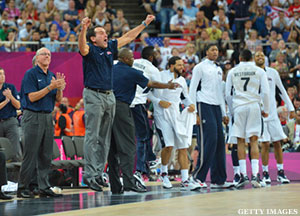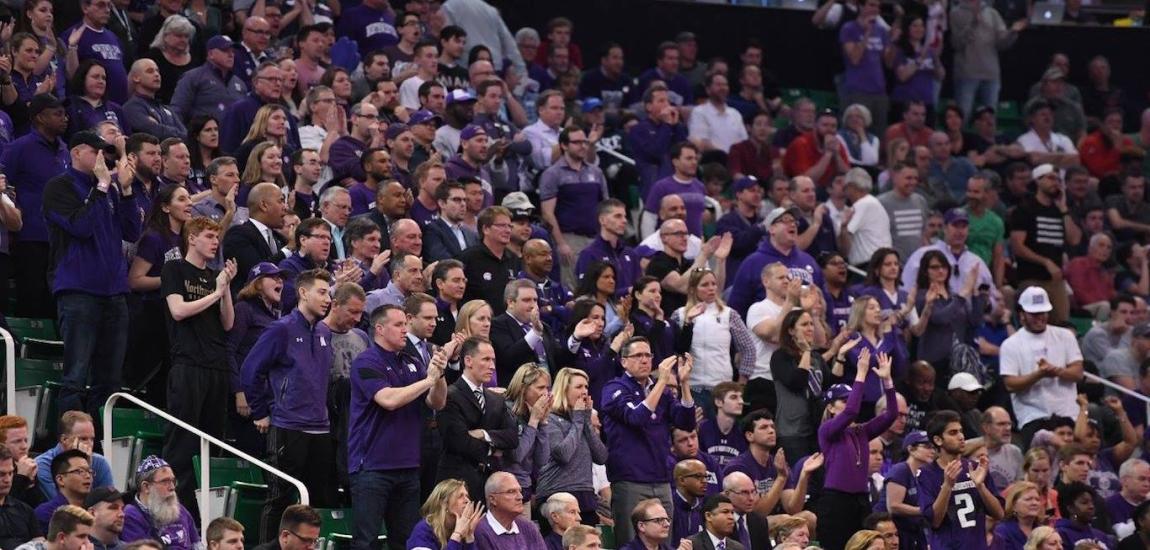The Game:
Whistle-happy FIBA refs were the primary culprit behind a rather disjointed flow early on, nearly making a highly anticipated game unwatchable. Forty of the 63 free throws shot in the game came in the first 20 minutes alone. Yet in a half foul-filled half, there was one call that stood out from all the rest.

Team USA led 46-44 with 5:29 left in the second quarter when Spanish big man Marc Gasol was called for his fourth while attempting to grab an offensive rebound over Kevin Love. It was a huge blow for Spain and gave the Americans the opportunity to blow the game wide open. But Juan Carlos Navarro, struggling all tournament due to a nagging foot injury, exploded in the first half, scoring 14 points. So despite one of Spain's key pieces confined to the bench due to foul trouble, the U.S. entered halftime only up one.
With the younger Gasol on the bench to open the third quarter, the Americans were still unable to pull away from a spirited Spanish squad. This time, it was the elder Gasol singlehandedly keeping Spain's upset hopes alive. Dueling with Laker teammate Kobe Bryant (7 third quarter points) and Kevin Durant (10 of his game-high 30 points), Pau Gasol scored 15 of his 24 points in the period.
The Americans were clinging to an 83-82 entering the final quarter when Marc Gasol's absence finally came back to haunt the underdogs. With Spanish head coach Sergio Scariolo forced to pair Serge Ibaka (Oklahoma City Thunder) and little-used reserve Felipe Reyes in his frontcourt, Team USA went on a quick 7-2 run to open the quarter. Spain never got closer than six the rest of the way and Chris Paul's driving layup with just under a minute left put the U.S. up 11, all but sealing the gold for Team USA.

The Good:
Head coach Mike Krzyzewski has been upset a time or two during his lengthy and distinguished NCAA career, experiences he no doubt leaned on coming up with a gameplan for Spain. The key to most of those shocking defeats was likely the underdog's success with the 3-point shot -- the great equalizer for the basketball David when attempting to slay Goliath.
With that in mind, Coach K chose to press tight to the perimeter players on Spain in hopes of eliminating a hot-shooting night from behind the arc. The flip side to this strategy is that the Gasols could then attack his undersized squad in a series of 1-on-1 post-ups with ample room to operate.
In the third, we saw Pau rip apart the American defense for those 15 points. What we didn't see, however, was a barrage of 3-point shots from Spain. The Spaniards only attempted four the entire quarter (including a desperation halfcourt have by Sergio Rodriquez at the buzzer) and just six the whole second half. Had Coach K hit the panic button during that stretch -- calling for aggressive double teams on Gasol or having help defenders collapse the paint on post catches -- it would have led to a lot more attempts from 3-point territory.
More 3-pointers on the wrong night (one in which Spain is shooting lights out) could have left Team USA playing from behind, adding to the already suffocating pressure heaped on the heavy favorite. Krzyzewski instead chose to eliminate any possibility of quick, Carmelo Anthony-like 3-point binges by making Spain grind out points slowly with shots near the paint. Without the boost of the 3-ball, Spain couldn't manage to keep up with all the offensive talent on Team USA, scoring only 18 fourth-quarter points (seven of which came in the last 40 seconds, after the U.S. reserves had all checked in).

By sticking with a gameplan that limited 3-point attempts, Krzyzewski played a vital role in Team USA's gold-medal victory.
The Bad:
The U.S. won the gold. What's there to worry about until 2016?
Looking Ahead:
Whether the Olympics go to a 23-and-under format in Rio four years from now remains to be seen. A separate tournament through FIBA and/or the NBA would certainly still be entertaining on the floor, but the Olympic experience as a whole cannot be duplicated.
With pros and cons to both sides of the debate, it's unlikely to count on this being settled anytime soon. Sadly, between now and 2016 there will be an epic struggle over who stands to reap the financial windfall from a worldwide basketball tournament.
USA Basketball itself is also in a state of flux. Chairman Jerry Colangelo will likely see a large chunk of his core leave the program due to age or indifference over the coming years. Getting a new nucleus to sign up for a four-year commitment will be a major priority, though not his first.
Sitting atop his to-do list will be filling the gaping hole in the USA Basketball hierarchy created by Krzyzewski's departure. The prestige of the position ensures there will be no shortage of candidates for the head coaching position, but it also makes the selection much more difficult.

The names floated around thus far all hail from the professional ranks, but it will interesting to see if Colangelo dips back into the collegiate ranks (Billy Donovan? Brad Stevens? Jay Wright?) to tab Krzyzewski's successor.
No matter what faces change around the program, USA Basketball has found a system for continued success. As long as the Americans keep working to combine their talent with commitment and continuity, they will remain golden.
-- Brett Koremenos is the editor at NBA Playbook and a contributor to Hoopspeak. Follow him on Twitter @BKoremenos.









